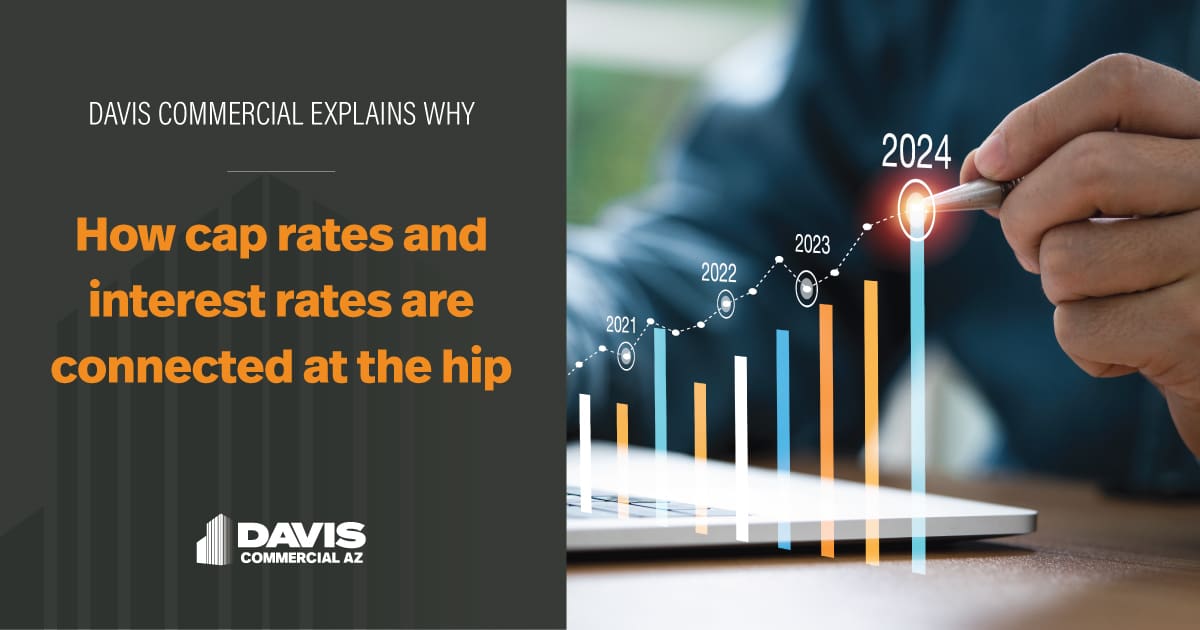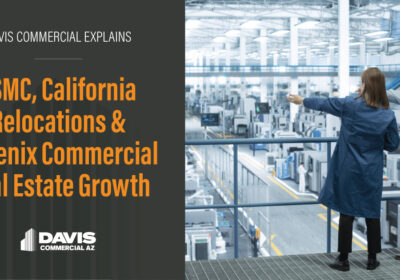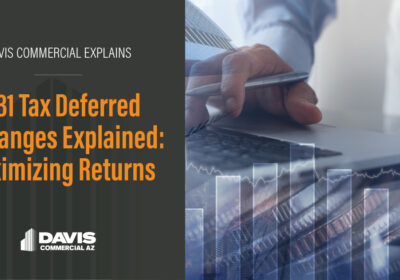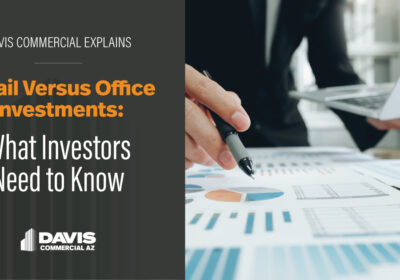How cap rates and interest rates are connected at the hip

Capitalization (cap) rates and interest rates are two important economic indicators that provide insight into the state of the economy and the real estate market. Whether you are a CRE professional, a developer, or an investor it is important to understand the dynamic relationship between cap rates and interest rates. When we see interest rates and cap rates ebb and flow, it’s pertinent to consider the factors influencing the fluctuations and how best to approach the market.
What are Cap Rates?
Think of cap rates as ROI (return on investment). They represent the rate of return an investor might expect to make on a real estate investment, which is based on the property’s income after all expenses are paid. There is a myriad of factors that determine cap rates, such as supply and demand, as well as market conditions. When cap rates are higher (such as 10%) so is the return, but the risk is often weightier, while lower cap rates (such as 4.5%) suggest a lower rate of return and decreased risk.
What are Interest Rates?
Interest rates, as dictated by The Federal Reserve and various economic factors, refer to the price that borrowers pay to lenders for the use of money, such as a mortgage or another type of loan. When interest rates increase the cost of borrowing goes up and forces cap rates to rise. This causes property values to decrease. When interest rates are lower, there’s often greater demand on the market, in turn making commercial real estate investments worth more money.
What is the relationship between cap rates and interest rates?
The economy plays its part when we talk about the ebb and flow of cap rates and interest rates. Typically cap rates follow interest rates and vice versa. To understand this relationship a bit more, consider this for a moment. If you are receiving a 4% cash on cash return for your investment, would you sign a loan with a 7% interest rate? No. No smart investor would do this because paying a higher interest rate on the mortgage than return on investment would cost them about 3% every month. Now property is taking money out of your pocket versus growing your bank account.
The reverse is also true. When you can borrow money at a lower interest rate than the cap rate on your income property, the investor essentially makes money on the banknote.
The relationship between the two is not always straightforward and other factors may affect it, including investor demand, property type and location, and other market conditions. Therefore, it’s imperative that real estate investors assess the many factors at play when examining investment opportunities, rather than relying solely on the relationship between cap rates and interest rates. However, by closely monitoring interest rate movements and assessing their effects, CRE professionals and investors can position themselves to benefit from market opportunities, while navigating the constant flux of the real estate landscape.
If you are looking for a buyer representative who understands the ebb and flow of cap rates and interest rates to keep your head and interests above water, the Davis Commercial AZ team is highly knowledgeable and focused on personalized service. Investment properties are their sweet spot. Our CRE professionals combine more than 30 years of experience to help guide you through the investment process and determine when to strike or when to “sit this one out!” There are always multiple factors to consider, which is why working with a seasoned CRE representative is best practice. Our goal is to see our clients achieve their desired ROI in any climate and to set realistic expectations. To learn more about our business and approach and services get in contact here.
Related Posts

TSMC, California Relocations & Phoenix Commercial Real Estate Growth
Phoenix commercial real estate continues to attract national attention as major employers and corporate relocations…

Why a Build-To-Suit May Be a Smart Choice for Businesses
Elevated interest rates, selective lending and mixed signals in national headlines have created confusion about…

1031 Tax Deferred Exchanges Explained: Maximizing Returns
As businesses grow and operations evolve, so do their property needs. The need for new…

Retail Versus Office Investments: What Investors Need to Know
Not all commercial real estate properties are created equal. Whether you’re eyeing a retail center…
